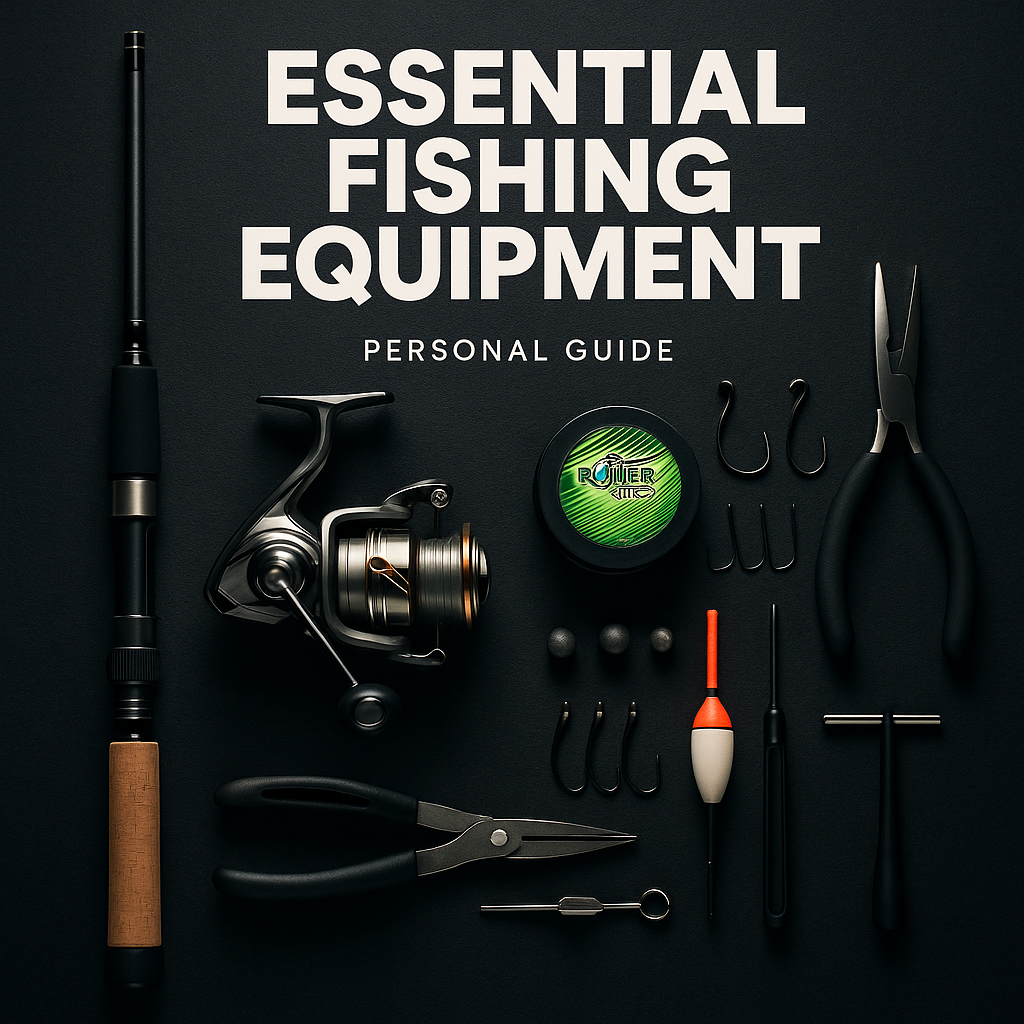After twenty years casting lines across countless lakes and rivers, I’ve developed rather strong opinions about what constitutes truly essential fishing equipment. While the marketplace floods anglers with endless “must-have” gadgets, experience has taught me that success ultimately depends on a carefully selected core arsenal.
The Foundation: Rod Selection
Nothing quite compares to finding that perfect rod. I’ve spent considerable sums on high-end models, yet surprisingly, my mid-range St. Croix spinning rod remains my faithful companion for most outings. For newcomers to our wonderful sport, I’d advocate for a medium-action spinning rod around 6’6″ in length—this provides remarkable versatility across different fishing scenarios.
When selecting your rod, don’t merely accept what feels acceptable in the shop. Take a moment to properly test its action. Gently bend the tip and observe how it recovers. The right rod should feel like a natural extension of your arm rather than an awkward tool.
Rod Power vs Rod Action – Quick Reference Guide
Rod Power | Best Applications | Rod Action | Characteristics |
|---|---|---|---|
Ultra-Light | Small fish, delicate lures | Fast Action | Bends mainly at tip; quick response, excellent hook setting |
Light | Trout, panfish, smaller species | Moderate-Fast | Bends in upper 1/3; good balance between sensitivity and power |
Medium-Light | General fishing, smaller predators | Moderate | Bends to middle of blank; versatility, good feel |
Medium | All-purpose, most species | Moderate-Slow | Bends in lower 2/3; better casting, less precision |
Medium-Heavy | Larger predators, heavier lures | Slow | Bends almost full length; maximum casting distance |
Heavy | Large fish, tough terrain, deep water | Extra-Fast | Minimal bend; maximum control, good for precision casting |
Reel Considerations
A quality reel transforms the entire fishing experience. Having dealt with the frustration of subpar models seizing up mid-fight, I cannot stress enough the importance of investing in reliability. Shimano and Daiwa produce exceptional spinning reels that, with proper maintenance, will serve faithfully for many seasons.
Speaking of maintenance—do clean your reel after each outing. This becomes absolutely non-negotiable for saltwater fishing. A quick freshwater rinse followed by light lubrication will extend your reel’s lifespan considerably. This might seem tedious initially, but it becomes second nature with time.
Reel Size and Line Selection Guide
Method | Reel Size | Line Strength (lb) | Line Diameter (mm) | Recommended Line Type |
|---|---|---|---|---|
Light Spinning | 1000-2500 | 4-8 | 0.14-0.20 | Braid with fluorocarbon leader |
Medium Spinning | 2500-4000 | 8-15 | 0.20-0.28 | Braid with fluorocarbon leader |
Heavy Spinning | 4000-5000 | 15-30 | 0.28-0.40 | Braid with 0.35-0.45mm leader |
Light Feeder | 3000-4000 | 6-10 | 0.18-0.25 | Monofilament line |
Heavy Feeder | 4000-6000 | 10-15 | 0.25-0.30 | Monofilament line |
Jig Fishing | 2500-4000 | 10-20 | 0.14-0.22 | Braid with fluorocarbon leader |
Method Feeder | 3000-4000 | 8-12 | 0.22-0.28 | Monofilament line |
Terminal Tackle Essentials
My tackle box once overflowed with every conceivable hook pattern and sinker weight. Experience has taught me to streamline considerably. A thoughtfully curated selection of circle hooks (sizes 1/0 through 4/0) covers most scenarios while promoting better catch-and-release outcomes.
I’ve found tungsten weights preferable to traditional lead, both for environmental concerns and improved sensitivity. As for bobbers, quality balsa models outperform plastic varieties in terms of sensitivity, though they demand greater initial investment.
**Please remember to check local fishing regulations! Many waters have special rules regarding permitted tackle and equipment, including:
“No-lead” zones where lead weights are prohibited
Mandatory barbless hook requirements in Catch & Release waters
Size and bag limits that may vary by water body and region
Seasonal closures during spawning periods**
Organization and Efficiency
Perhaps nothing separates seasoned anglers from novices quite like tackle organization. After experimenting with countless systems, I’ve settled on a compartmentalized waterproof case for terminal tackle complemented by purpose-specific lure boxes. This approach allows rapid access to precisely what’s needed without rummaging through disorganized compartments.
Always keep essential tools—quality line cutters, needle-nose pliers, and measuring tape—immediately accessible. During intense fishing moments, efficiency becomes paramount.
Conservation Tools and C&R Ethics
As a responsible angler, equipment for fish safety is just as important as your fishing gear when practicing catch and release:
Fine-mesh, knotless landing net – minimizes damage to fish slime and scales, crucial for C&R fishing
Unhooking mat – a padded, moistened surface protects the fish while removing hooks and taking photos
Professional hook removal tools:
Long-nosed pliers with locking mechanism – excellent for deeply set hooks
Hook disgorger – quick and safe hook removal
T-bar – specialized tool for small hooks with micro-lures
Antiseptic solution – for treating any wounds before release
Cradle-type landing net – for safely weighing larger specimens
Knowledge of proper fish handling techniques is equally important as the equipment itself. Always:
Wet your hands before touching the fish
Hold fish horizontally, supporting their belly
Minimize time out of water
Allow the fish to regain balance before release
A true fishing enthusiast cares deeply about aquatic resources and their inhabitants, ensuring they remain available for future generations of anglers.
Final Reflections
While I continuously refine my equipment selections, these fundamental principles have served me exceptionally well across diverse fishing environments. Quality need not always equate to extravagant expense, but rather to thoughtful selection of gear appropriate to your specific angling approach.
The quiet satisfaction of landing a challenging catch with equipment you’ve carefully selected creates a connection to the sport that transcends mere recreation. Whether you’re targeting wary brown trout in crystal-clear streams or battling powerful pike in weedy lakes, these equipment foundations will serve you admirably.
Wishing you memorable days on the water and lines perpetually tight with anticipation.




